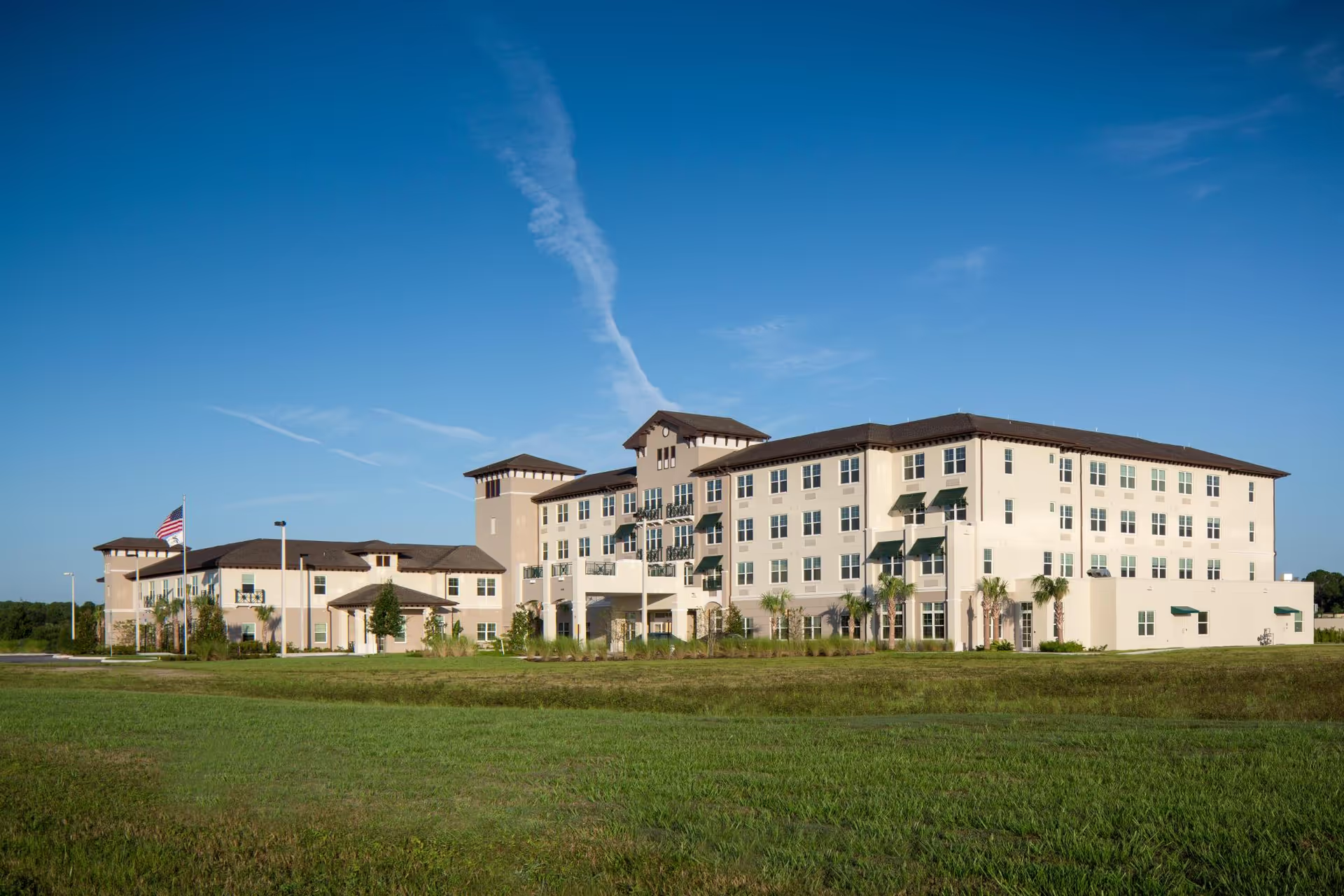Overall sentiment across the reviews is mixed but leans toward positive experiences with important and recurring caveats. Many reviewers praise the staff, describing them as friendly, caring, and attentive. Specific positive reports note nurses who monitor health and inform families promptly, staff who know residents by name, and employees who go above and beyond for individual needs. Multiple families highlighted meaningful improvements in health or mood after moving in, and many residents reported making friends and enjoying social life. The Village at Cook Springs is repeatedly described as having a pleasant, rural/farm atmosphere with a pond, fountain, red barn, and farm animals (donkeys and goats) that residents and families enjoy. Outdoor spaces, walking paths, courtyard views, and a generally homey, country setting are frequent highlights.
Facilities and amenities receive generally favorable comments but with variation. Several reviewers describe clean, updated, and well-decorated rooms and common areas, private rooms with bathrooms, and good sight lines to nature or water. On-site services such as labs, X-rays, laundry, hair salon, and a library are appreciated. Activities are broad when available: bingo, cards, puzzles, crafts, cooking classes, exercise, chapel services, live entertainment, and frequent outings to shops, restaurants, movies, and casinos. Transportation is provided and families often cite the variety of social programming as a major benefit. Dining is another strong point for many reviewers: food is described as plentiful, well-seasoned, and nutritious with extra-enrichment options; however, this is not universal and some report bland or occasionally inedible meals.
Despite numerous positive reports, serious and recurring concerns appear in a substantial number of reviews and cannot be ignored. Staffing inconsistency and shortages are a dominant theme: reviewers frequently allege understaffing, high turnover, and that weekend or evening shifts are less well staffed or less attentive. These staffing problems are tied to concrete safety and care issues in the reviews -- missed medications, missed breathing treatments, antibiotics not administered, medication transfer errors, and other medication-administration failures. Several reviews describe residents being left in soiled clothing or bedding for hours, infrequent bathing, poor hygiene, strong urine or other odors, and instances of residents left in bed or dark rooms. There are multiple accounts of falls that were not observed or attended to promptly by staff, and at least some reports link missed care to hospitalization or worse. A small but notable number of reviews allege severe outcomes, including death and potential litigation, and some reviewers reference a state investigation, altered records, and untrustworthy management. These are allegations in reviews and indicate the need for careful verification, but they are repeated enough to be material to decision making.
Management and communication receive mixed feedback. Some reviewers praise accessible administrators who respond quickly (even with personal contact info), helpful Medicaid administrators, and staff who provide regular family updates. Others report unresponsive management, poor communication, failure to call back, evasive or misleading information, and even allegations of altered records or corporate nonresponsiveness. Related concerns include claims that activities or services were misrepresented on the website, issues with paperwork and consent processes, and inconsistent application of policies during the COVID-19 pandemic, such as strict visitation rules that family members found harmful or activity limitations during quarantine.
Patterns to note: many families report a positive social and emotional environment with strong staff-resident relationships, varied activities, and a unique farm-like setting that many residents love. Conversely, a different but sizable subset of reviewers describes critical lapses in basic care, hygiene, medication management, and supervision, especially in memory care or during certain shifts. Food, housekeeping, and facility cleanliness are praised by many but criticized by others, suggesting variable experiences that may depend on unit, floor, shift, or timing. Memory care is offered and valued by some families, but there are also concerns about staff training, certification, and supervision in dementia care.
Conclusion and implications for prospective families: reviews reveal both clear strengths (staff who are compassionate and engaged, attractive grounds and meaningful activities, on-site services, and generally good meals for many) and substantial risks (reports of missed medications, neglectful hygiene, falls, inconsistent management responsiveness, and serious allegations including hospitalization and death). Because experiences are highly variable, it would be prudent for prospective residents and families to conduct an in-person tour, ask specific and direct questions about staffing ratios by shift, weekend coverage, medication administration protocols, incident reporting, dementia-care training, recent state inspection reports and outcomes, and how they handled any past adverse events. Verifying claims about activities and staffing, and requesting references or speaking with current families, will help determine whether the positive experiences highlighted in many reviews are likely to match an individual resident's needs and safety requirements.







